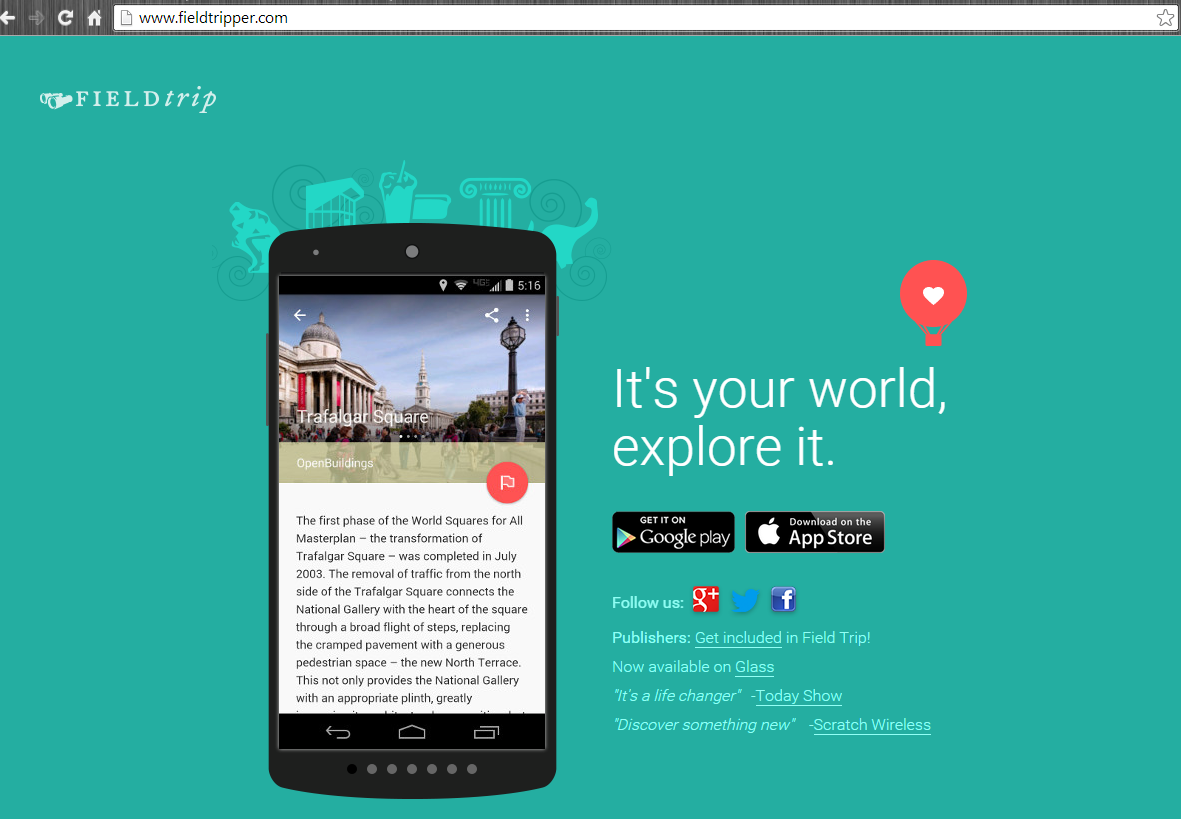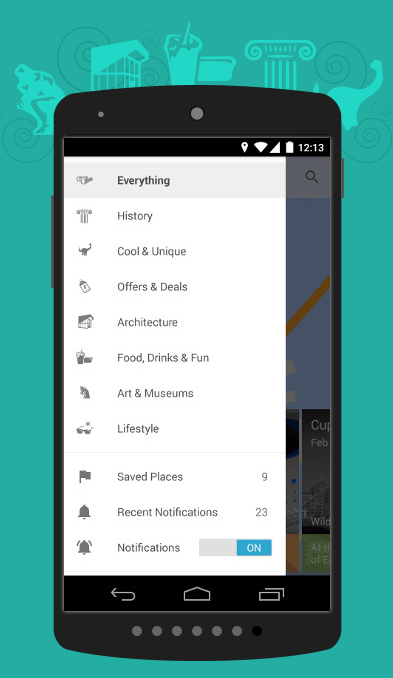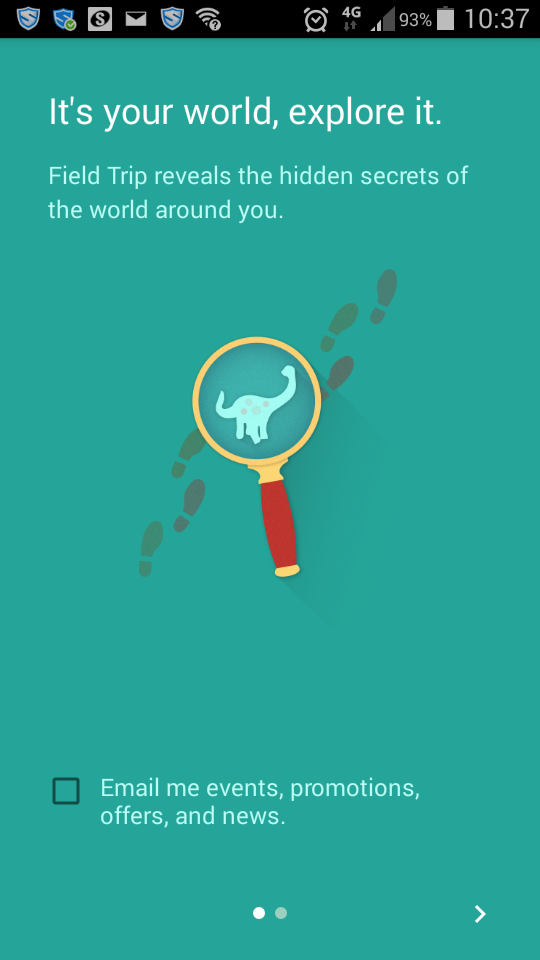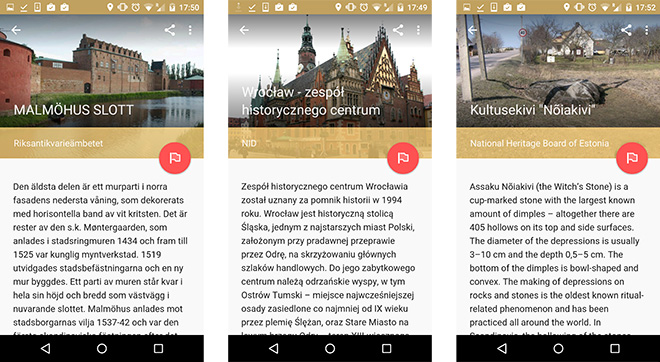Reach cultural tourists through Europeana in Google’s Field Trip app
Now, tourists from around the world can use Field Trip to view and learn about archaeological sites, historical buildings and monuments in Poland, Estonia and Sweden.
Europeana, Google's Niantic Labs and selected memory institutions have successfully completed a pilot project to integrate curated cultural content in Google’s Field Trip app. Now, tourists from around the world can use Field Trip to view and learn about archaeological sites, historical buildings and monuments in Poland, Estonia and Sweden.

Google’s Field Trip app (GFT) is a mobile app developed by Google’s Niantic Labs for iPhone, Android mobile devices and Google Glass. It has registered over 1 million downloads so far and is available in more than 30 languages. The app recognises where people are and allows them to explore and discover more about their surroundings, from local history to the best places to shop, eat and have fun.
When installing the app, people select the feeds they want, such as history, architecture, lifestyle, etc. and can explore all publishers and their content within a feed. In real life, when people walk next to an object or place of interest that matches their feed preference, a card with more information pops up automatically on their device. For the best experience, the users can choose the frequency of the app notifications and share their discoveries with their friends via e-mail and social networks.


The Field Trip app has a tightly curated list of more than 200 publishers, ranging from Mimoa to Open Buildings showcasing architecture, Spotted by Locals for the best kept secrets, TimeOut and Thrillist for best places to eat and drink, and, now, Europeana partners for local historical gems.
The pilot project kicked off last year in line with Europeana’s strategy to enable and promote the creative re-use of cultural content in the tourism sector. Europeana identified potential project content partners, worked closely with them on the curation and enrichment of their collections and facilitated the data integration in Google’s Field Trip by supplying a Europeana API-enabled content feed. The participating providers are extensively branded on the individual object card though their logo, a short profile and links to their website.
The content sourcing project phase highlighted the strong need for open and fit for purpose data. A dataset is suitable for publishing in the GFT app via Europeana if it meets the following requirements:
- Tourism-relevant theme: objects related to architecture (historical buildings, monuments), unique urban and nature landscapes, archaeological sites
- High-quality image(s) – a minimum of 0.5-1 megapixel when 1 megapixel = 1.048.576 pixels (image width x height)
- Narrative object description –interesting facts about the place or object should be presented in a story-telling style. This description can be in either the local language or in English.
- Exact geo-coordinates (longitude + latitude)
- Freely Reusable content (Public Domain or CC0, CC-BY, CC-BY-SA)
The project prioritises quality over quantity; hence, the metadata quality (and not the collection size) has been the main criteria in the project partner selection.

Taster of partners' datasets in Google's Field Trip
Three Europeana partners - the Swedish National Heritage Board, the National Heritage Board of Estonia and the National Heritage Board of Poland - joined the pilot to share their curated and enriched collections. Their datasets are now available in the app history feed and guide tourists to beautiful and prominent historical buildings and monuments in Estonia, Poland and Sweden.
The pilot project with Google’s Niantic Labs marks a successful entry in the tourism market and is the first step in building solid and productive relationships between cultural institutions and the digital tourism industry. Having their collections available on the Google’s Field Trip app will allow memory institutions to have greater visibility, wider outreach and deeper engagement with their audiences.
This pilot has set up the legal and technical framework to support a long-term re-use partnership. If you are a data provider and have a collection which meets some or all of the listed requirements and are willing to work with us on its curation and enrichment, reach out to Europeana to join this project.
